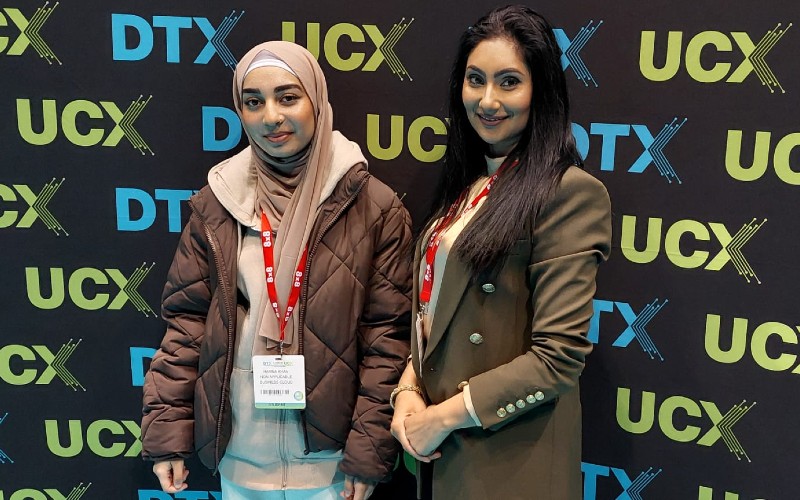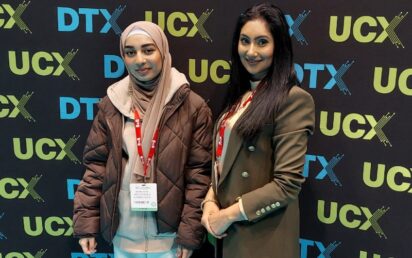Academic Dr Amna Khan has built a successful career as a respected voice in consumer behaviour and retail.
Now a senior lecturer at Manchester Metropolitan University’s Business School, she has been invited as a keynote speaker to international conferences, is a regular panellist for corporate events and has provided expert comment for the BBC, ITV, Channel 5 and The Conversation.
However Dr Khan, a British Pakistani who grew up in Manchester, says it was a trail she had to blaze for herself.
“My parents wanted me to do law. I did business studies for one year but they were adamant so I converted to a law degree. I did it for three months and I was so miserable,” she told BusinessCloud work experience student Hamna Khan – no relation – at the Digital Transformation Expo (DTX) in Manchester.
“I was so upset. I remember having to go back home one day, and I said to them: ‘I’ll do this law degree because I can do it. I don’t want to do it, and I would be much happier if you just let me go back to that business degree, but I promise that I’ll make you proud.’
“They went: ‘If you’re unhappy, nothing’s going to make us happy. Go and do what your dream is.’ I’d never had that conversation with them before.”
After finishing her undergraduate degree at Manchester Met, Dr Khan completed a Masters then PhD in marketing at the Alliance Manchester Business School, supported by a scholarship from AstraZeneca. Her research specialised in the trust development process behind business relationships in China.
Stereotypes
She adds: “I’m inspiring South Asian females because of my ethnic background: I’m a role model, showing them that you can have a successful career that’s outside of the stereotypical doctor, accountant or barrister [roles].
“I wanted to break the stereotype. I speak to girls in schools from ethnic minority backgrounds and their parents and I ask: ‘Why do you think that only those three occupations can give you success? You can be ambitious and successful and you can achieve what you like.’
“I didn’t know any female British Pakistani within my circle or network that I could look up to as a role model. It was about paving that path: ‘this is a British white male sector, but I’m going to go there and I’m going to be successful.’
“As a lecturer, I knew I would be able to speak to people constantly about reshaping the narrative. The students that I see, even now, are rarely males or females from a South Asian background… but I’m hoping that as a role model I can help change that.”
BBC Breakfast
An unexpected opportunity to appear as a retail expert on BBC Breakfast arrived as her academic career blossomed. “So many people rang my dad and told him they’d seen me on TV and that he should be proud,” recalls Dr Khan. “These were people also from ethnic minorities who never thought that a female British Pakistani would get to be in the media.
“It’s a career path I never expected: I thought I was going to be a lecturer and research papers, but what I’ve done is to create a profile to connect with the media and different audiences: it could be BBC Breakfast, or through public speaking.
“It’s about challenging the narrative and shaping it.”
pro-manchester
Dr Khan is race, ethnicity, religion & beliefs chair at networking and events membership body pro-manchester, leading the committee to create dialogue around diversity and inclusivity topics.
She has this advice for South Asian students considering an alternative career path: “Continuously challenging barriers isn’t easy, but you’re gonna have to keep challenging them. It’s not the same for you as somebody who’s British white, but you have to keep pushing that trajectory.
“Organisations also really need to open their eyes to the diversity that they can have and how they can create so much productivity – increase their performance, corporate cultures – through having people who have lived narratives different from those of others.”


